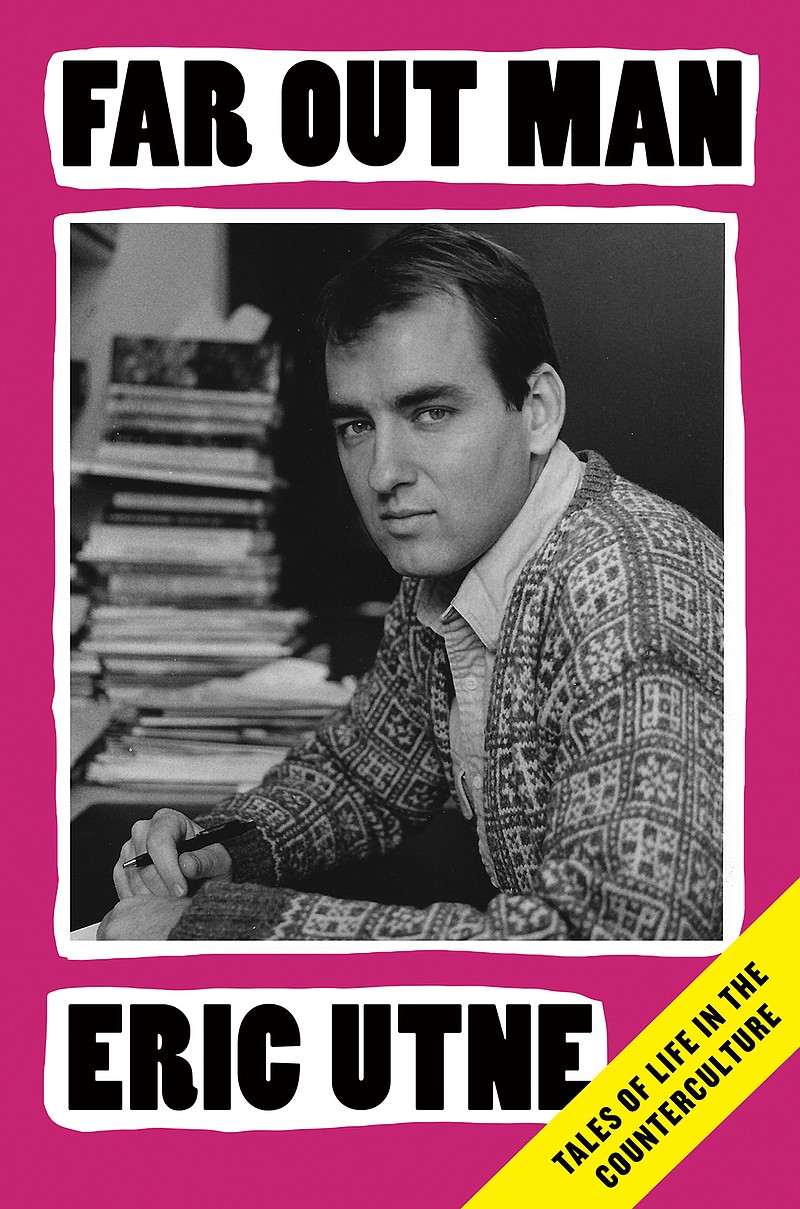Eric Utne's "Far Out Man" annoyed me until I started to love it.
Let's get the autobiography's annoying stuff out of the way. Fad diets, sage burning and talking sticks pop up all too frequently. And maybe the Utne Reader founder inhaled too much sage because there are weird glitches that his editor should have caught, especially in a book written by an editor.
Just one: At Margaret Mead's funeral, Utne quotes her partner insisting Mead didn't say an epigram attributed to her, "Never doubt that a small group of committed citizens can change the world, indeed it's the only thing that ever has." But, 76 pages later, he goes ahead and attributes it to Mead anyway, altering the wording in the process. Which is it?
I could mention others, but the truth is, mutability may be what makes Utne Utne. You could, for instance, ding the Minnesota native for embracing father figure after father figure only to drop them when they reveal themselves as imperfect. But what emerges from this idiosyncratic, entertaining memoir is that Utne is about the journey, not the destination.
"Far Out Man" gets its title from the author's last name, which means "far out" in Norwegian, and it's applicable in every possible way. Utne depicts himself as always willing to drop everything to zip off to a collective of seekers in Scotland or study acupuncture in Boston or be a tempura chef in London or, really, go anywhere where people grappled with the secrets of existence. About the eighth time he pulled up stakes, I scribbled "AGAIN?" in the book but that says more about stick-in-the-mud me than Utne's sincere quest to understand his place in the world.
Utne's book is light on personal details. Early on, he's an observer of his own life, relying on quoted material and the impressions of others and, throughout, he appears reluctant to share much about his two wives, current partner or four sons. But when it comes to his search, Utne is candid about mistakes, eager to learn from them and quick to credit those who helped him along the way.
The most compelling figures are poet Robert Bly, whom Utne borderline worships but accidentally betrayed twice in the pages of the Utne Reader, and Brenda Ueland, technically his step-grandmother but that term doesn't cover the enormous impact the late writer's intellect and "X-ray eye" had on him. She guides him, even from the grave - and, perhaps, helps him make amends with Bly, who emerges as a remarkably generous elder in "Far Out Man."
Utne self-diagnoses himself as having "Gatsby/Gandhi syndrome": "I wanted to help save the world from social injustice and environmental disaster, and I wanted to make money doing it, possibly lots of it." That's a common thread: It's not that Utne doesn't see contradictions. It's that he wants to make them noncontradictory.
That may be why pages 68 and 69 are my favorites in this openhearted memoir. First, Utne writes about how disrespectful it is for a westerner (first wife Peggy) to perform a Japanese tea ceremony. Mere paragraphs later, Utne himself is lecturing about "shiatsu massage, Eastern philosophy, yin and yang and the order of the universe."
It's hard not to be dazzled by Utne's bountiful, unruly charm (or, in photos from his 30s, his resemblance to actor Lee Pace, a very good person to resemble). It's why the book opens with seven - count 'em, seven - epigraphs. It's why he simultaneously believes one thing and its opposite. And it's why his mistake-filled journey is so damn fun to read.

